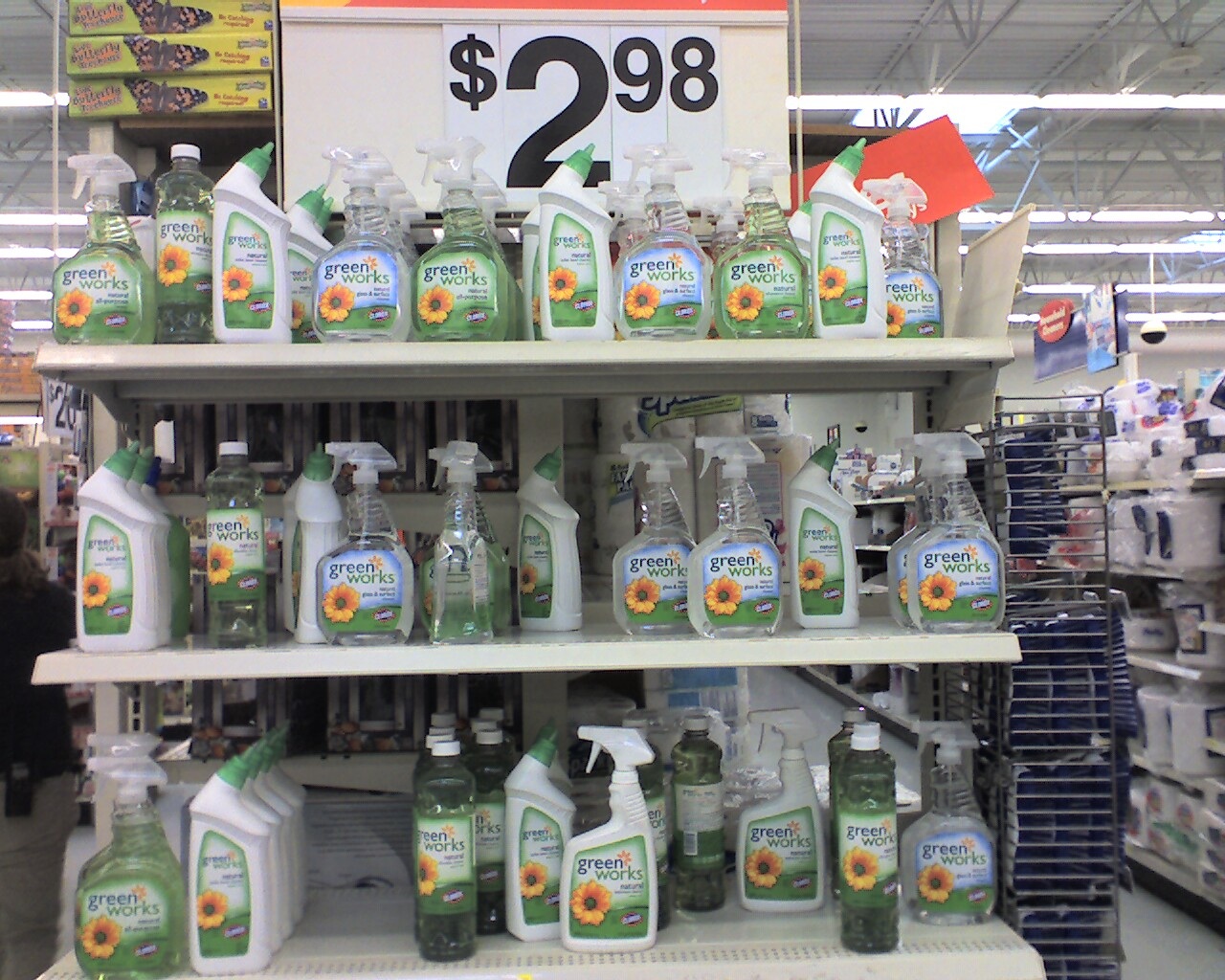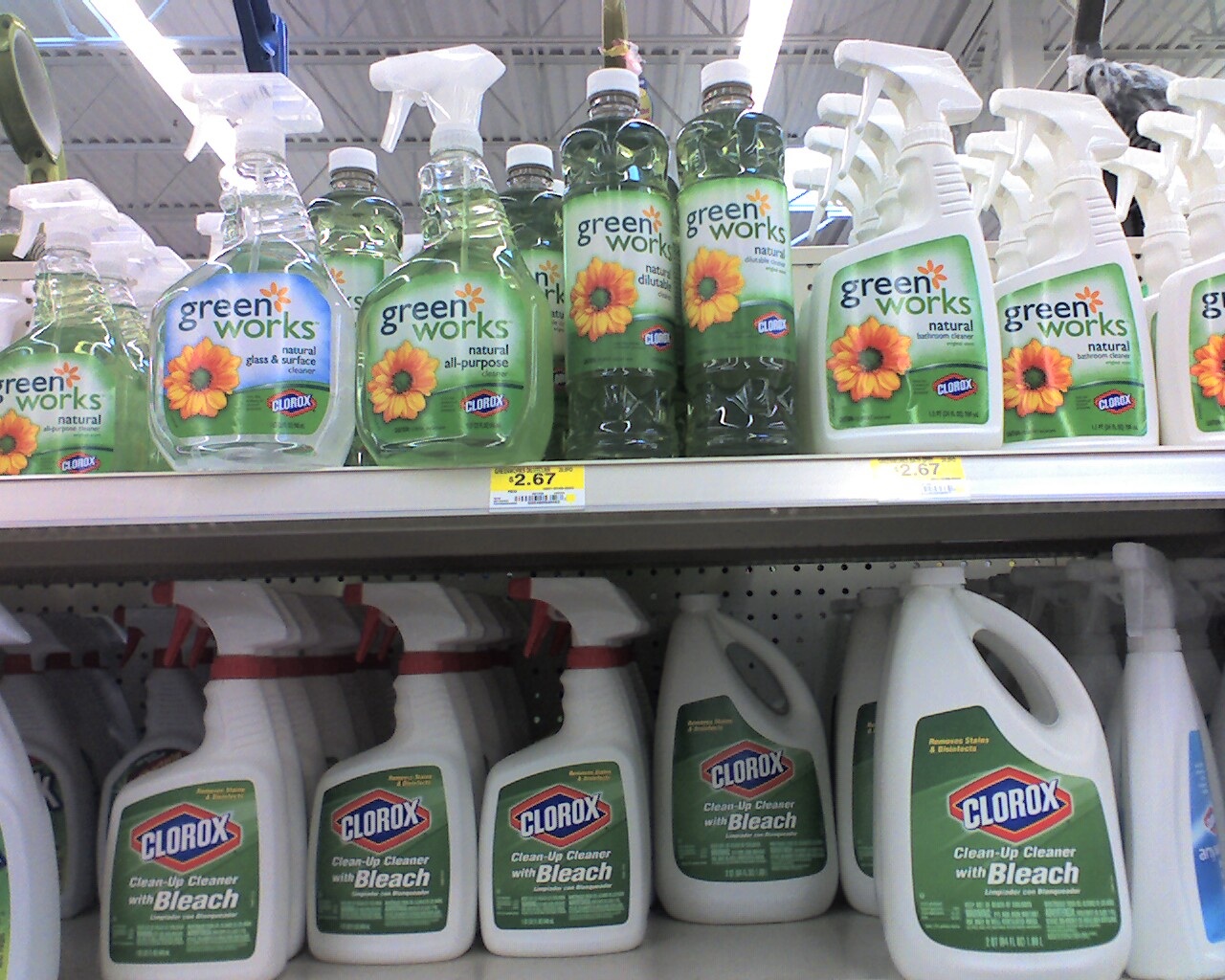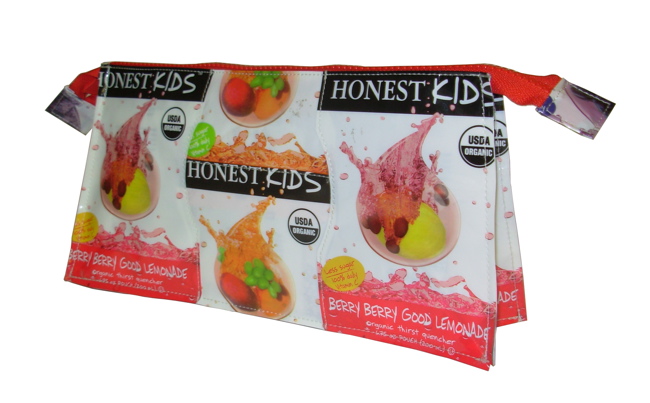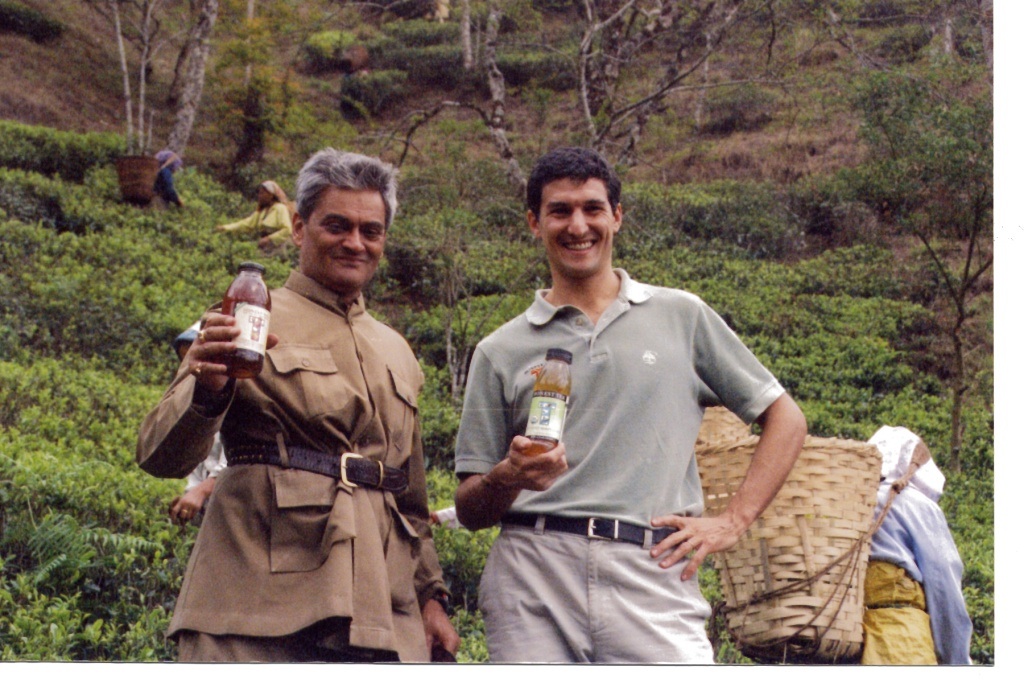More on Clorox: Take Back the Filter!
As a relative newcomer to the world of online green organizing, I’m a bit atypical. After having spent 20 years in corporate marketing for high tech firms, I understand Big Business, and no, I don’t think all corporations are evil as some environmentalists believe. In fact, there’s not much I see in stark black versus white contrast – I see the shades of gray.
So when I hear about “campaigns” against various companies, I tend to cringe. I know that these “grassroots campaigns” are often well coordinated PR campaigns led by sophisticated organizations (sometimes competitors) with very definite agendas.
But the campaign to convince Clorox to recycle Brita water filters in North America is different. It’s led by a reasonable woman, someone who is a true activist and yet has a regular job with a real company — Beth Terry of the blog Fake Plastic Fish.
The first thing I asked myself when I heard about the campaign was, “Well, has she asked Clorox about their position?”
And of course she had. In fact, Beth had sent Clorox letters prior to starting the campaign, and she later posted the response letters from Clorox on her campaign website here. And since then, Beth has talked with Clorox representatives about their position that the refill cartridges are not recyclable – despite the fact that Brita filters are recycled in Europe!
Clorox is spending a lot of money going after green consumers through its acquisition of Burt’s Bees, its launch of Green Works cleaners, and its campaign to reduce plastic water bottle usage in favor of using Brita filtered water. As the saying goes, if you’re going to talk the talk, you have to walk the walk. If Clorox truly is “going green,” it needs to re-examine its current business practices.
From the campaign website:
In August of 2007, Clorox and Nalgene teamed up for their FilterForGood campaign, encouraging people to buy a reusable Nalgene bottle and fill it with Brita filtered water in order to reduce plastic bottle waste. According to Clorox’s letter, “One pour-through filter can effectively replace 300 standard bottles of water (16.9oz)” and “…in 2006 Americans used about 50 billion plastic water bottles.”
So, if all 50 billion water bottles were replaced by Brita filter systems, that would mean 167 million plastic filter cartridges sent to the landfill! We’re all for giving up bottled water. But we think there’s a better way than substituting one kind of plastic waste for another.
What can you do? Join us in asking Clorox to develop a recycling program for Brita filters in the US and Canada. Check out Take Back the Filter to learn more about how you can help by signing the online petition, writing a letter to Clorox, sending in your used Brita filters, blogging about the issue, or donating to offset campaign expenses. And here’s some more ideas for how you can help spread the word.
More info available here at the campaign Facebook page too.
Still No In-Store Refill Containers for Clorox Green Works
Back in January, OrganicMania posted a rave review about Clorox Green Works™, but questioned the lack of refill containers. How can a “green” eco-friendly product lack refill containers? At the time, a Green Works PR rep told OrganicMania that the company was “exploring this option.”
My local grocery store still isn’t carrying refill containers, so this weekend OrganicMania wandered into a Walmart, thinking that if any place would stock refill containers, it would be a superstore like Walmart, which caters to families and people making bulk purchases.
But there were none to be found. It’s now more than three months since the launch of Green Works, and still no refill containers. Do Clorox Green Works, Walmart and the other retailers just expect consumers to keep buying more and more of the small containers? Sure, they’re recyclable, but it’s not as sustainable an approach as offering refill containers.
Refill containers are important because they minimize the use of smaller, nozzled plastic containers, reduce waste, and simply because they’re something green consumers expect from a green product line. They’re a key component of source reduction, which decreases the amount of materials used during the manufacturing and distribution of products.
Funny thing is, you can easily find a 64 ounce refill container for traditional Clorox cleaners, but not for Clorox Green Works.
Can a product be truly green without a sustainable approach to packaging? Me thinks not.
4/30/08 Update: Finally, after more Internet searching, I discovered that refill containers for Green Works are available on line at multiple sources including here, here and here, as well as at warehouse clubs like Sam’s. But this approach isn’t sufficiently green for a green product. If you’re going to market as a green company, you need to be authentically green. That includes packaging considerations. More on this tomorrow, when OrganicMania talks about the Take Back the Filter campaign against Clorox and Brita water filters.
Copyright OrganicMania 2008
Filed under Green Cleaning Products, Greenwashing, Marketing, Product Recommendations, Sustainable Packaging | Wordpress Comments (6) |Green Savings Tip for School Lunch
When it comes to school lunches, finding healthy, organic foods that won’t break the bank and that are packaged sustainably can be quite a chore.
Juice packs are all the rage with kids. But did you ever look at the pile of juice boxes and plastic straws left over after lunch? What a waste of packaging and natural resources! Not to mention the expense of those little boxes! They’re certainly not cheap.
It’s not a good idea to save money by compromising on non-organic juice, particularly if it’s apple juice your child is drinking. Apples are heavily laden with pesticides, and childrens’ bodies are very sensitive to the chemical load of pesticides.
What to do? You can save money and reduce waste by purchasing a large container of organic apple juice and a re-usable juice box or thermos. Plus, you can dilute the apple juice with water to make it an even healthier treat for your child. Diluting with water also makes that large bottle last longer, making it less expensive. Works for me!
And just to make it even easier for you….here’s a link to a printable coupon for 75 cents off a large bottle of Santa Cruz organic juice. If there’s a Whole Foods near you, check out their house brand of 365 Organics – they’re considerably cheaper than the name brands, although with this Santa Cruz coupon, you’ll need to compare prices at your local store.
— Lynn
Copyright OrganicMania 2008
Filed under Food, Green Ideas & Stuff, Organic Prices, Organics vs. Conventional Foods, Parenting, Product Recommendations, School lunches, Sustainable Packaging, Tips, Where to Buy Organics | Wordpress Comments (7) |Interview: Seth Goldman, Tea-EO of Honest Tea, Part 2
Part 1 of the OrganicMania Interview with Seth Goldman is here.
OrganicMania: Honest Tea’s kids’ tea, Honest Kids, is sold in plastic pouches that aren’t recyclable. I know you have information on the wrapper about your relationship with Terracycle, but it’s a bit hard to follow…you have to go to the website to get more information, for example. Not many tired Mothers have the presence of mind to do that before disposing of the packaging.
Seth Goldman: Actually, that plastic pouch is the most environmentally efficient packaging we have. By weight, the pouch is 97% product, and only 3% packaging so there’s very little waste. We’re not using fuel just to ship packaging.
Since we launched that line last year, several thousand pouches have been collected and turned into bags through our relationship with Terracycle. We are reaching 1,000 collection sites around the country, in places like schools, youth centers, and other places where kids gather.
(Ed Note: You can learn more about this re-use program here.)
Still, it’s a challenge. We live in a consumer society. The definition of a consumer is to destroy, and the definition of sustainability is the exact opposite. How do you live a sustainable life in a consumer society? You’re setting yourself up for a contradiction.
I just participated in a class discussion at the Yale School of Management, and I talked with the students about environmental impacts of business. What we can try to do is to take our environmental practices and our consciousness about our packaging and try to move things in a different direction.
OrganicMania: Still, when we were kids, we just didn’t use this much plastic. I remember paper straws, for example. Couldn’t you use a paper straw with the drink pouch instead of plastic?
Seth Goldman: Well, you need some sharpness to punch in the drink pouch and insert the straw. You couldn’t do that with paper.
OrganicMania: I see there are a lot of issues to consider when looking at which materials to use…it’s especially interesting to hear about the trade-offs between plastic and glass. I think most people are unaware of these trade-offs and just tend to think that plastic is bad and glass is good because of recycling. But as you’ve shown, you can save fuel and cut carbon emissions through plastic use and then encourage re-use of plastic through programs like the one Honest Kids has underway with Terracycle.
Speaking of kids, recently I blogged about what I call “Organic Kid Marketing” – organics companies that are using cartoon characters on packaging to market their products directly to kids. It’s notable that you chose not to do that with Honest Kids. In fact, there are pictures of fresh fruit on the Honest Tea boxes and drink pouches, yet it’s obvious it’s a kid’s drink because of the iconic plastic pouch shape that speaks to kids. Did you have heated internal discussions about whether or not to engage more directly in “Organic Kid Marketing?” And do you know the ages of typical Honest Kids consumers?
Seth Goldman: It was a deliberate decision not to do something like putting “Elmo” on the package, because we didn’t want to limit the age of the people who would be interested in drinking Honest Kids. In fact, I know a lot of adults who drink it. People write in and tell us, “I drink it in my office,” so it’s obvious it’s not kids who are doing that! We really don’t know the exact age range of most of the Honest Kids drinkers…our information right now is mainly anecdotal. Kids do like to be seen with it. We know we’re not losing opportunities with it because there’s not a character used to market it. In fact, use of a character probably would have limited the market for Honest Kids. I know there are kids in middle school drinking Honest Kids. You wouldn’t catch a sixth grader with a Power Rangers juice box! So while we don’t know the exact age, I think age 2 to 12 is probably the right way to think about it.
And that’s another positive part of our deal with Coca Cola. We’ll get a lot more distribution of Honest Kids, including, hopefully, at places like McDonalds.
OrganicMania: Obviously, your professional life is all about organics. What about your personal life? You have kids, too. How do they deal with all the focus on organics?
Seth Goldman: We’re vegetarian, we eat mainly organic, we have a composter in the back, we drive a hybrid, I ride my bike a lot…but that said we’re living in a consumer society so we deal with the same contradictions everyone faces. My kids are sometimes teased about it, but in a fun way.
OrganicMania: You’ve used your blog, Seth and Barry’s Blog, to address customer concerns about Coke’s investment in Honest Tea. When you’re not doing your own blogging, which blogs do you enjoy reading?
Seth Goldman: I like reading Emily Bazelon on Slate, I like reading some of the blogs on Inc.com and Stonyfield Farm’s blog.
OrganicMania: Thanks so much for your time, Seth! This has been a really interesting discussion – I think people will enjoy it.
— Lynn
Copyright 2008 OrganicMania
Filed under Interviews, Marketing, Organic Mommypreneurs, Sustainable Packaging | Wordpress Comments (6) |Interview: Honest Tea Tea-EO Seth Goldman (Part 1)
Big news hit the organics world in early February, when Coca-Cola took a 40% stake in Honest Tea, the nation’s best selling and fastest growing organic tea company. Seth Goldman, Honest Tea’s co-founder and “Tea-EO” sat down with OrganicMania in March at Honest Tea’s light filled, eco-friendly headquarters in Bethesda, Maryland for this interview touching on sustainable packaging and the organics movement.
Note: With my background in corporate marketing, I’m accustomed to seeing CEOs flanked by their PR people. Given Coke’s considerable stake in the company, I half-expected a visitor from Atlanta to join us. But it was just Seth and yours truly for 45 minutes. Here’s what was discussed:
OrganicMania: What sparked your interest in organics and sustainability?
Seth Goldman: I’ve always had environmental awareness. I’ve always spent a lot of time outdoors. I worked at Calvert Group where they had environmental screens. I was leader of a campus group for students for responsible business, now called NetImpact, although I was more focused on economic opportunity than environmental issues.
After starting Honest Tea, it was only natural to get more focused on and more concerned about the environment and agricultural practices. One of the things I learned is that tea is one of the few products that is never rinsed. If you have a tomato or an apple, you can easily rinse it before eating it. But if chemicals are sprayed on tea leaves, the chemicals stay on the tea leaves until hot water is poured in the teacup. In countries like China and India, there is a lot less oversight. Unless there’s an organics inspector, it’s safe to assume atrazine is used, which is the herbicide believed to be responsible for dual sex frogs. There are concerns about safety and the affects on people. So it was in the process of learning about tea for Honest Tea, that I learned about organics. We looked at every responsible option available to us. And the beginning was the use of organic sweeteners.
OrganicMania: What about packaging? One of the main issues that bothers green consumers, like those who come to OrganicMania, is that even if you take the time, energy and money to seek out an organic or green product as an alternative to a traditional product, odds are the organic or “green” product will still be packaged in plastic or some other environmentally-unfriendly packaging. How long will it be until we have biodegradable packaging for organics and green products? What kinds of strides are being made in that area?
Seth Goldman: It’s an evolution. There are no simple answers, although technology is advancing, and that will help. One example of this is corn resin, which can be made into biodegradable plastic for some products. But that won’t work with Honest Tea, because we heat up to 180 to 190 degrees and biodegradable plastic couldn’t withstand that kind of heat. Some biodegradable plastic will work with commercial composting, but not with home composting, and commercial composting is not yet widely available. You can’t put biodegradable plastic in a recycling bin because the plastic is not a PET, and so that bottle contaminates the waste stream.
There are some interesting ideas being proposed, for example, to increase the use of recycled content. Coca-Cola is doing a lot of this, and through Coca-Cola, we’ll now be able to increase our recycled content. Can we get to over 20 percent recycled content in our bottles? I would love to see us go further in that direction. On our own, Honest Tea doesn’t command enough attention from suppliers to make them supply us with recycled content in our bottles, but when we are associated with the world’s largest beverage company, we have a better chance to get their attention.
There are other advances in packaging that are exciting. For example, looking at second uses for products. What about peeling off the skin on a product? So that even if the outer skin couldn’t be recycled, the inner skin could be recycled. These are just ideas, but again, this is part of the reason I’m excited about our deal with Coca-Cola. The Coca- Cola R&D centers are doing a lot of interesting research in these areas.
Visit OrganicMania.com tomorrow for Part 2 of this interview with Honest Tea co-founder and “Tea-EO,” Seth Goldman, where he’ll continue the discussion about plastic packaging, sustainability, and Honest Tea’s deal with Coke.
What do you think about Seth’s viewpoints? Leave a comment and share!
— Lynn
Copyright 2008 OrganicMania
Filed under Interviews, Marketing, Organics, Organics vs. Conventional Foods, Sustainable Packaging | Wordpress Comments (3) |





 My StumbleUpon Page
My StumbleUpon Page



